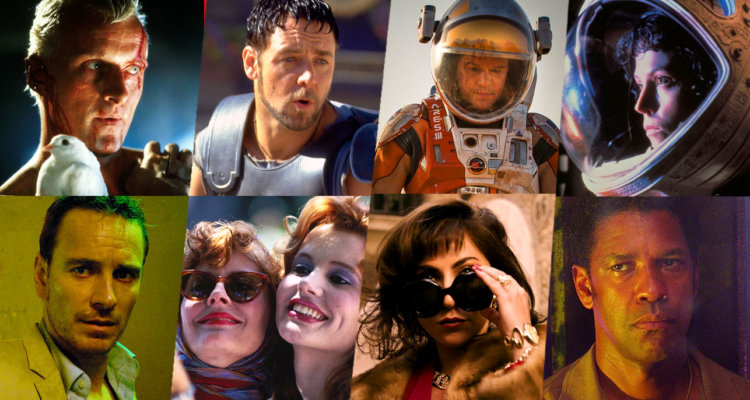“A Good Year” (2006)
This 2006 picture is one of Scott’s most fascinating failures, if only because it seems to swim against the tide of his basic intuition and the very fiber of his nature. Putatively a romantic comedy, it is actually more of a character study about a tried-and-true asshole (Russell Crowe’s British investment broker) who eventually discovers he has a soul when he inherits his uncle’s French chateau and vineyard—the very place where he spent his childhood and a locale that contains his most cherished memories. The movie is a complete 180 from everything the filmmaker has ever made because, for once, he shies away from genre and spectacle and digs around for some true humanity. So on paper, we ideologically love this film and for its first hour or so it almost is the film we’d hope for, in which we get to see Scott attempting something different and succeeding. But then comes the second half and the film lapses into woefully pedestrian cliches, and by the third act when the immensely unconvincing romance between Crowe and a thinly drawn Marion Cotillard, comes to the fore, you can’t avoid noticing how superficial it all is. Extra demerits for managing to waste such talented actresses as Cotillard and Abbie Cornish too. [C]
“American Gangster” (2007)
If there’s one perplexing habit that Scott has developed late in his career and we’d like him to please stop, it’s taking fundamentally interesting stories and characters, and then making a film about them before they become that interesting (hello, “Robin Hood,” goodbye, “Robin Hood”). And “American Gangster” is really Exhibit A here: originally a sort of dual-identities experiment about how the cat and mouse can sometimes have more in common than they want to think, somehow it morphed into a rather unsatisfying origin story. So the film ends just when it’s getting good: with a post-script informing us of the unusual working relationship between the two main characters cocaine “entrepreneur” Frank Lucas (Denzel Washington) and dogged city cop Ritchie Roberts (Russell Crowe). Who cares about the familiar rise-and-fall beats of Lucas’ back story, or the broken homelife subplots paralleled by both men? We want to see the film where his nemesis Roberts starts to defend Lucas, fighting to shortening his sentence—the film that happens, sadly, after the credits roll. [B-]
“Body of Lies” (2008)
It’s not that “Body of Lies” is bad — it’s just that it should be so much better. A spy movie that’s depressingly short on political intrigue, it still has a lot going for it in one of Russell Crowe’s most understated performances since “The Insider” (and by now he’d settled nicely into the schlubby everyman phase of his career as opposed to the growling god of “Gladiator“), and one of more convincingly grown-up Leonardo DiCaprio turns from this era too. The story, detailing a CIA operative who uncovers a lead on a major terrorist leader suspected to be operating out of Jordan is just a little rote, but it does give Crowe the chance to subvert his tough guy, alpha male persona and gave good supporting roles to ever reliable Mark Strong and pre-big-time Oscar Isaac as well. Scott would bring them both back for his next picture, but while that film would turn out to be probably the most turgid of his entire career, this one remains fairly entertaining if insignificant, and probably quite a bit better than its posthumous reputation suggests. [B-]
“Robin Hood” (2010)
As one of the most frequently filmed tales in cinema history, how would Scott, reuniting with Russell Crowe once again, find a fresh spin on “Robin Hood”? Hey guys, I know! Let’s 1) make it a prequel and 2) make it incredibly boring! Assuming we were ever interested in what happened to legendary folk hero Robin Hood before he became interesting, Scott’s version adds insult to injury by not only stripping out all that extraneous robs-from-the-rich-and-gives-to-the-poor stuff, but by replacing it with a Tea Party-style message about how unfair it is that millionaire Ridley Scott has to pay his taxes or something. The “Gladiator”-style action suffers from a severe case of diminishing returns, and the performances, even from greats like Cate Blanchett, Mark Strong and William Hurt, are flat and tedious, saved only by the sneeringly entertaining Oscar Isaac as Prince John. Perhaps Scott, sick of the ceaseless summation of “Kingdom of Heaven” as his worst film decided to make a worse one to teach us all. He succeeded. [D-]

